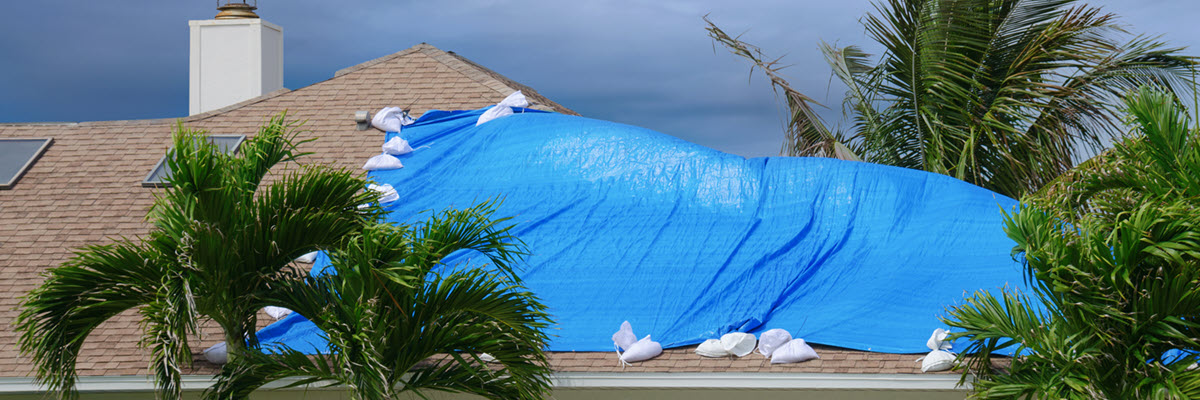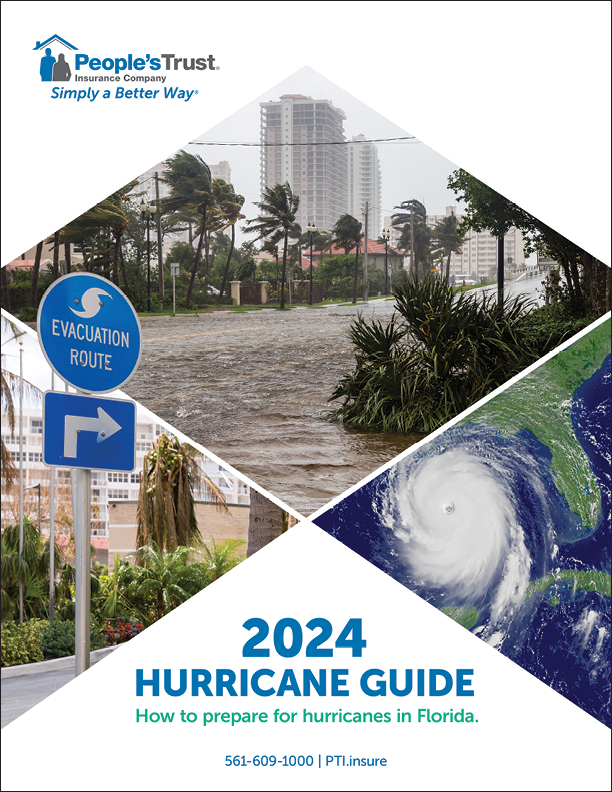Hurricane Hub
Tips and insights to help you handle those inevitable Florida hurricanes.
Does Your Home Insurance Cover Hurricanes?

Florida is known for its gorgeous weather. However, that includes a dark side: no other US state gets more hurricanes than Florida. As a Florida homeowner, when hurricane watches and warnings punctuate our long, hot summers, it can be stressful. What if you need to file an insurance claim for hurricane-related damage — only to discover that the damage isn’t covered by your policy? Here’s how to find out if you’re protected.
What’s excluded by your policy?
Since every insurance policy is different, you should talk to your insurance company about what you are or are not covered for. But generally speaking, as long as a peril isn’t listed as an exclusion by the policy, it’s usually covered by your homeowners insurance. Now, your policy may or may not mention “hurricane damage” per se. So, you’ll want to review your policy’s list of exclusions for anything related to “wind” or “windstorms,” and “water” or “flooding.”
Any losses due to flooding are not covered by most homeowner’s insurance policies. So chances are you’ll need to purchase a separate flood insurance policy. And in a hurricane-prone state like Florida, flood insurance is a must. Keep in mind that flood insurance policies are not effective until 30 days after you make a payment — so you need to purchase it well in advance of the next hurricane
If certain types of wind damage are excluded by your policy, then you may want to explore a separate wind insurance policy. Since windstorms like hurricanes, tornadoes, and tropical storms all occur in Florida, it’s usually a good idea to get this coverage as soon as you can.
Is the coverage you have enough?
If you’ve verified that your home is insured against hurricane damages like winds and floods, you’ll also want to make sure that the coverage you’re getting is actually sufficient.
For starters, verify that your policy limit will cover the costs needed to replace any destroyed property. Keep in mind that due to depreciation, the Actual Cash Value (ACV) of your items will always be less than the Replacement Costs for those same items. If you catalog your personal possessions by conducting a home inventory, you can then estimate what you paid for those items and what they’re probably worth currently. That will help determine if your homeowners insurance is enough to cover you in the event of a total loss. When estimating the value of the home itself, don’t forget that the real estate value of a house is not the same as the cost to rebuild.
You may also want to take into consideration the need for Additional Living Expenses. If a hurricane makes your home unfit to live in, Additional Living Expenses coverage pays for reasonable additional living expenses you may incur while your home is being repaired. Additional Living Expenses coverage is generally equal to 20 percent of the insured value of the structure of your home, but higher coverage limit options are often available.
Stormy days are just part of life in Florida. But by taking these steps to understand your current homeowners insurance, you can find any gaps and purchase additional policies or coverage where necessary. Then you can get back to enjoying that year-round Florida sunshine, worry-free.
Download PTI’s Hurricane Preparedness Guide for more hurricane preparation tips.

